PA Update – PA Supreme Court Clarifies Liability for Events Serving Alcohol
Civil liability for the provision of alcohol has been a longstanding concern in the case law of Pennsylvania, as well as in the minds of event organizers. While the 1951 Dram Shop Act has long established liability for liquor licensees that overserve patrons, non-licensees have rested in somewhat of a gray area. What, for example, should the liability be for a person making drinks at home for their friends? For a club that sells alcohol to its members? A company that sells tickets to an outing, where some ticket sales go toward communal alcohol? Pennsylvania courts have since clarified the responsibilities of parties in the first two scenarios, establishing no liability for “social hosts” who serve adult guests in Klein v. Raysinger, 470 A.2d 507 (Pa. 1983), and placing liability on individuals who sell alcohol the way a liquor licensee would in Hinebaugh v. Pennsylvania Snowseekers Snowmobile Club, 63 Pa. D. & C. 4th 140 (C.C.P. Lawrence 2003). In April, the Pennsylvania Supreme Court gave us an answer to the third scenario.
In April’s case of Klar v. Dairy Farmers of America, et al.(Pa. 2023, No. 29 WAP 2022), plaintiff David Klar sought recovery from Defendant Roger Williams and Williams’s employer, Dairy Farmers of America (“DFA”) for injuries he incurred after a traffic accident with Williams. At the time of the crash, Williams had been driving home from a golf outing organized by DFA, at which Klar claims DFA overserved him alcohol.
The case presented a somewhat gray area of law, as DFA had charged its employees a fee to participate in the outing, which went toward the collective cost of greens fees, food, and alcohol for participants. Because of this arrangement, Klar argued that DFA had “sold” alcohol to the participants, making them subject to liability for Williams’s actions. DFA, in contrast, argued that they were merely a social host, pooling money together for supplies in the way somebody might before making a “beer run” at a social gathering.
Klar’s argument for liability rested on two principal theories: first, that DFA were liable under the Dram Shop Act because of their cover fee assisted the purchase of alcohol for the outing; and second, that DFA’s actions in serving Williams were negligent under common law negligence principles. The court rejected his argument on both grounds.
In assessing the first argument, the Court argued that Klar’s interpretation of the Dram Shop Act would be too expansive to apply the Dram Shop Act logically and practically. Klar had made the assertion that, since the Dram Shop Act applies to “any licensee or the board, or any employee, servant or agent of such licensee or of the board, or any other person,” and does not allow them to “sell, furnish or give any liquor or malt or brewed beverages, or to permit any liquor or malt or brewed beverages to be sold, furnished or given, to any person visibly intoxicated,” it was illegal for any person under any circumstances to give alcohol to someone visibly intoxicated. The court rejected this argument, reasoning that under established principles of statutory interpretation, “any other person” here refers to any person “who fall[s] within the same general class” as the specifically-named entities earlier in the Act.
Essentially, this language imposed liability on anybody who “stepped into the shoes” of a liquor licensee by selling alcohol without a license. Since, in this case, DFA had provided alcohol “available to all of the attendees on a self-serve basis” and that “no-one was accepting money on a per-drink basis,” the court held that DFA’s actions did not amount to selling alcohol.
Klar’s second argument was that DFA should be held liable as being negligent in allowing the intoxicated Williams to continue drinking. The court likewise rejected this argument, appealing to the precedent of Klein v. Raysinger, which stated “in the case of an ordinary able bodied man it is the consumption of the alcohol, rather than the furnishing of the alcohol, which is the proximate cause of any subsequent occurrence.” It was accordingly Williams, rather than DFA, who should bear liability for the traffic accident.
Event organizers would do well to heed the Court’s rulings in this case—if they are planning a paid event with alcohol involved, for example, it will always be more prudent to serve that alcohol communally rather than charging by drink. Differences like these can make or break a business’s case in court.



